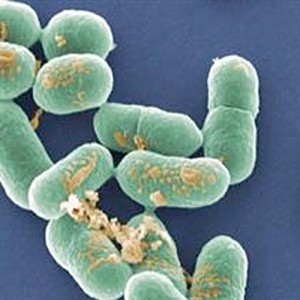Listeriosis and Bacteria Listeria - symptoms and treatment

What is Listeriosis and Bacteria Listeria
Listeriosis - an illness that results from INFECTION with the bacterium Listeria monocytogenes. Listeriosis most often occurs as a foodborne illness and has the potential to cause serious symptoms. Listeria monocytogenes are normally present in soil and can contaminate milking equipment. Animals also can carry Listeria monocytogenes without illness. The most common sources of listeriosis are unpasteurized milk and cheeses and processed foods that become contaminated after processing, such as lunch meats served in delis and restaurants. Thorough cooking and pasteurization kill Listeria monocytogenes BACTERIA.
Symptoms of Listeriosis/Bacteria Listeria and Diagnostic Path
Symptoms of listeriosis are often fairly severe and many people who develop the illness require hospitalization for treatment. Symptoms may include
Symptoms may also be specific to the type of infection, such as MENINGITIS or PNEUMONIA. The diagnostic path includes BLOOD cultures and, when neurologic symptoms are present, LUMBAR PUNCTURE to examine and culture the spinal fluid. The presence of Listeria monocytogenes confirms the diagnosis.
Listeriosis Treatment Options and Outlook
Treatment is antibiotic therapy, intravenous when symptoms are serious and oral when symptoms are moderate. Ampicillin, erythromycin, and sulfamethoxazole/trimethoprim (SMZ-TMP) are the antibiotics most effective; the usual course of antibiotic therapy may be four to six weeks. Most people fully recover with appropriate ANTIBIOTIC MEDICATIONS.
Risk Factors and Preventive Measures
People most at risk for listeriosis are those who are IMMUNOCOMPROMISED, particularly people who have HIV/AIDS. Pregnant women are also more vulnerable to infection and can pass the infection to their unborn babies; researchers believe this is due to the changes that take place in a woman’s body under the influence of the hormones of PREGNANCY. Some pregnant women can harbor Listeria monocytogenes bacteria without becoming ill, though pass the infection to their babies. Listeriosis can cause STILLBIRTH (fetal death) and serious neurologic problems in newborns after birth. Health experts caution pregnant women (and other people at increased risk for listeriosis) to eat lunch meats and hot dogs only that are thoroughly reheated, to eat only pasteurized cheeses, to drink only pasteurized milk, and to wash all vegetables and fruits before eating them including lettuce) as methods for reducing their exposure to Listeria monocytogenes infection.
See also FOODBORNE ILLNESSES; FOOD SAFETY; HORMONE; WATERBORNE ILLNESSES.